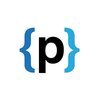
i
Coditas Technologies
Filter interviews by
Coditas Technologies QA Engineer Interview Questions and Answers
Coditas Technologies QA Engineer Interview Experiences
2 interviews found
(1 Question)
- Q1. What is inherentance?
- Ans.
Inheritance is a concept in object-oriented programming where a class inherits attributes and methods from another class.
Allows a class to inherit properties and behaviors from another class
Promotes code reusability and reduces redundancy
Creates a parent-child relationship between classes
Derived class can access public and protected members of the base class
Example: Class 'Car' can inherit from class 'Vehicle' to reuse
I applied via Walk-in and was interviewed in Sep 2021. There were 5 interview rounds.
Interview Questionnaire
3 Questions
- Q1. Bank app test case
- Q2. Basic manual testing concept
- Q3. Work experience
Interview Preparation Tips
But now a days 1-2 years exp candidate takes inferview
Top trending discussions






Interview questions from similar companies

I applied via Walk-in and was interviewed in Aug 2022. There were 4 interview rounds.
They asked me about SQL, C ,C ++ ,JAVA
General aptitude was given but it made me ro examine my knowledge and analytical skills
Genral topics like What is SQL and What is the main role of QA , Automation testing are the topics we had to discuss
(3 Questions)
- Q1. Self introduction, Techincal questions like What is the role of QA in their organisation, what is function of QA Automation testing , What are the Softwares used , What nis the future scope of automation t...
- Q2. What about Selenium IDE Difference between Manual and Automation
- Ans.
Selenium IDE is a record and playback tool for automating web applications. Manual testing is done by humans, while automation is done by machines.
Selenium IDE is a browser extension that records user actions and generates automated test scripts.
Manual testing involves human testers executing test cases and verifying results.
Automation testing involves using tools to execute test cases and compare actual results with e...
- Q3. Elaborate the Benefits of automation testing
- Ans.
Automation testing offers faster feedback, increased test coverage, and improved accuracy.
Faster feedback on code changes
Increased test coverage with the ability to run more tests in less time
Improved accuracy and consistency of test results
Reduced testing costs and time
Ability to test in different environments and configurations
Identification of defects earlier in the development cycle
Improved team productivity and co...
Interview Preparation Tips
- Java
- Python
- Selenium IDE
- Automation Testing
- Core Java
Skills evaluated in this interview

(1 Question)
- Q1. String reverse programs, sanity vs smoke, bug life cycle
(1 Question)
- Q1. Array program of multiplication of number except index number
- Ans.
Program to multiply all elements in an array except the element at the current index.
Iterate through the array and keep a running product of all elements before the current index
Iterate through the array again in reverse and multiply the running product with all elements after the current index
Store the result in a new array and return it
Interview Preparation Tips
basic about stlc, agile, regression and retesting

I applied via LinkedIn and was interviewed before Dec 2023. There were 2 interview rounds.
Coding questions on Javascript
(1 Question)
- Q1. Coding questions were asked

I applied via LinkedIn and was interviewed in Jul 2024. There were 2 interview rounds.
(2 Questions)
- Q1. What are the modules worked on Facets?
- Q2. What is Dental claim processing?
(2 Questions)
- Q1. What is your work experience
- Ans.
I have 5 years of experience working as a software engineer in various industries.
Developed web applications using Java, Spring, and AngularJS
Led a team of developers in a successful project delivery
Implemented CI/CD pipelines to automate software deployment
Worked on improving system performance and scalability
- Q2. Is working timing flexible
Interview Preparation Tips
- Facets
- Oracle SQL

I applied via Naukri.com and was interviewed before Jun 2023. There was 1 interview round.
(2 Questions)
- Q1. IAM & PAM Operations
- Q2. Related to Sailpoint
Interview Preparation Tips

Software Engineer Interview Questions & Answers
Solartis Technology Servicesposted on 24 Jun 2024
I applied via Campus Placement
45 questions were asked
3 questions were asked one from SQL and 2 from java
(1 Question)
- Q1. Oops concepts and java basics

Software Engineer Interview Questions & Answers
Solartis Technology Servicesposted on 22 Nov 2024
(2 Questions)
- Q1. Four Pillars of OOPS in Java?
- Ans.
Encapsulation, Inheritance, Polymorphism, Abstraction are the four pillars of OOPS in Java.
Encapsulation: Bundling data and methods that operate on the data into a single unit.
Inheritance: Allows a class to inherit properties and behavior from another class.
Polymorphism: Ability to present the same interface for different data types.
Abstraction: Hiding the implementation details and showing only the necessary features.
- Q2. What is a constructor in Java?
- Ans.
A constructor in Java is a special type of method that is used to initialize objects.
Constructors have the same name as the class they are in.
They do not have a return type, not even void.
Constructors are called when an object of a class is created.
Example: public class Car { public Car() { // constructor code } }
Skills evaluated in this interview

I applied via Naukri.com and was interviewed before Sep 2023. There was 1 interview round.
(2 Questions)
- Q1. Define hooks and its use cases
- Ans.
Hooks are functions that allow developers to use state and other React features in functional components.
Hooks are introduced in React 16.8 to allow state and other React features in functional components.
Use cases include managing state, using lifecycle methods, and accessing context in functional components.
Examples of hooks include useState, useEffect, useContext, and custom hooks created by developers.
- Q2. Difference between null and undefined
- Ans.
Null is a value that represents the absence of a value, while undefined means a variable has been declared but not assigned a value.
Null is a value that can be assigned to a variable to indicate that it has no value.
Undefined is a type that is automatically assigned to variables that have been declared but not initialized.
Null is a deliberate assignment by the programmer, while undefined is a default value assigned by ...
Skills evaluated in this interview
Coditas Technologies Interview FAQs
Tell us how to improve this page.
Coditas Technologies Interviews By Designations
- Coditas Technologies Software Engineer Interview Questions
- Coditas Technologies Associate Software Engineer Interview Questions
- Coditas Technologies Software Developer Interview Questions
- Coditas Technologies Intern Interview Questions
- Coditas Technologies Devops Engineer Interview Questions
- Coditas Technologies Senior Business Analyst Interview Questions
- Coditas Technologies Senior Software Engineer Interview Questions
- Coditas Technologies Data Engineer Interview Questions
- Show more
Interview Questions for Popular Designations
- Senior QA Engineer Interview Questions
- Software QA Engineer Interview Questions
- Test Engineer Interview Questions
- QA Test Engineer Interview Questions
- Automation Test Engineer Interview Questions
- Senior Test Engineer Interview Questions
- QA Automation Engineer Interview Questions
- QA Trainee Interview Questions
- Show more
Coditas Technologies QA Engineer Interview Process
based on 2 interviews
Interview experience
Interview Questions from Similar Companies
Fast track your campus placements
Coditas Technologies QA Engineer Reviews and Ratings
based on 6 reviews
Rating in categories
|
Software Engineer
412
salaries
| ₹3.6 L/yr - ₹12.5 L/yr |
|
Associate Software Engineer
149
salaries
| ₹1 L/yr - ₹9.1 L/yr |
|
Software Developer
144
salaries
| ₹5 L/yr - ₹17 L/yr |
|
Senior Software Engineer
113
salaries
| ₹10 L/yr - ₹35 L/yr |
|
Data Engineer
59
salaries
| ₹6 L/yr - ₹14 L/yr |

Mobile Programming

Diverse Lynx

Arcesium

Solartis Technology Services
- Home >
- Interviews >
- Coditas Technologies Interview Questions >
- Coditas Technologies QA Engineer Interview Questions












